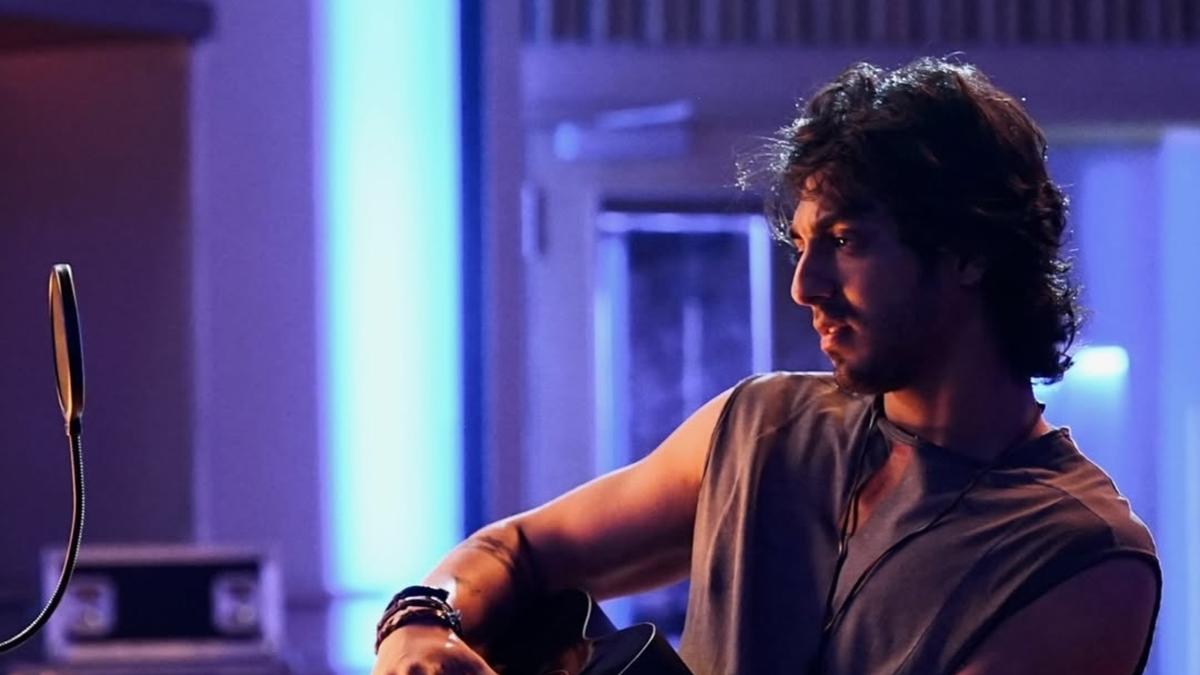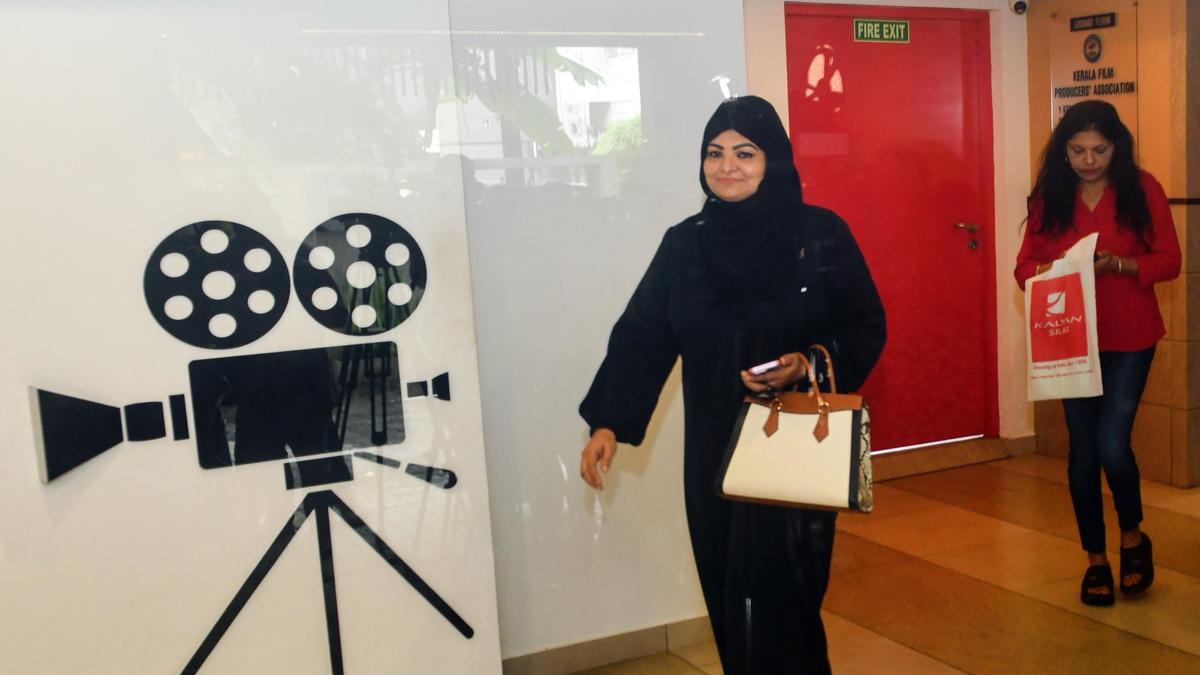After watching Thalaivan Thalaivii, you might ponder over a lot of things — from how tiffs in families can arise out of petty reasons and how gender dynamics play out in Indian families, to whether the film’s radical stance on divorce is a bit skewed. But before you get into all that, you will be tempted to do this — hit a south Indian non-veg joint for some hot steaming parottas and chicken salna (you win if you order the alluring Paal Parotta that Vijay Sethupathi and Nithya Menen devour in the film).
Somehow, spice is the term that comes to mind when thinking of Pandiraaj’s latest flick (‘masala’ feels too strong these days). Thalaivan Thalaivii, like a spicy Madurai fare, has all the flavours you would find in a crowd-pleasing entertainer. At its bare bones, it may not tell a novel story — about a feisty couple whose marital life turns sour, from their families and friends adding unnecessary spice to a match already at odds. But the film truly comes into its own in the first half, thanks to how audaciously Pandiraaj mixes the several elements we’ve come to associate with such family entertainers.
Assembled with intent and purpose, the film reminds us that the template can still work — and that the elusive monster called patriarchy will rear its head in a world built to host it.


Nithya Menen and Vijay Sethupathi in a still from ‘Thalaivan Thalaivii’ | Photo Credit: Special Arrangement
We begin with Perarasi a.k.a Arasi (Nithya Menen ably shoulders the part) and her family taking her infant daughter to perform the ceremonial tonsure at their family deity’s shrine. But while the barber is halfway through the shave, Perarasi’s estranged husband, Aagasa Veeran (a fantastic Vijay Sethupathi), interrupts and sends him flying, infuriated that the ceremony is taking place without his notice. The two families collide, there are brawls, slaps and taunts, and the chaos attracts the attention of a local thief (Yogi Babu) and a family (Kaali Venkat and co.) visiting the temple for their son’s birthday.
Why are the two families so enraged at each other? Why did Arasi walk out of her married home, leaving a husband she so dearly loved? What is, after all, the issue between Veeran and his brother-in-law (RK Suresh)? How much parotta does Veeran, a parotta master at the family-owned hotel, eat when he’s stressed?

A child with half-tonsured head, a boy carrying his birthday cake, and a thief shaken away from his thieving pursuit, wait patiently with the audience as a hilariously chaotic story unravels the answers to these questions. Firstly, one thing is made clear right from the beginning — these are anything but ‘normal’ families, if there’s ever been one. A joke calls Veeran a ‘Kirukku Payan’ (crazy fellow), and you are left in splits because these are truly mad, mad people. Characters, especially the central couple, get so eccentric that they border on absurdity, and at times, even come across a tad too annoying.
At the hands of less able performers, this shtick wouldn’t stick, but Vijay and Nithya somehow sell the charm, romance and the eccentricities of their characters, and the easy chemistry on screen allows us to forgive when it gets slightly repetitively theatrical. Every five minutes, we have them bickering at each other, with Veeran screaming pointlessly, only for Arasi to silence him without breaking a sweat. This becomes a pattern, and you love how self-aware the film is about Veeran’s helplessness.
Thalaivan Thalaivi (Tamil)
Director: Pandiraaj
Cast: Vijay Sethupathi, Nithya Menen, Yogi Babu, Chemban Vinod
Runtime: 155 minutes
Storyline: As a couple heads for divorce, we recount their lives to see where the trouble really lies

Much of the first half sails quite smoothly — except for a few problematic dialogues, which we will come to in a bit — as we witness how Arasi, after marrying Veeran, gets distraught at how her in-laws treat her. An educated young woman who fell in love with a man she believed to be caring, Arasi questions whether she was married to work as an unpaid labourer at their hotel. The life of comfort that she was promised, where she would truly get to be an ‘arasi’, is compromised, and so she returns to her parental home. Veeran then follow her home, pacifies her and brings her back. This becomes a vicious cycle, and it’s hilarious how, after a point, these tiffs are triggered by ego brushes, one more nonsensical than the other.
Now, while it’s fine to show these inconsequential reasons as such, you expect the trigger for the bigger, central tiff that eventually led to divorce to be strong. This is where the film begins to lose its footing, as the reasoning isn’t convincing enough. Post the intermission, the film moves quite erratically till the climax. The stretch, from when Veeran’s enemies leave to confront him at the temple to when the two go on a religious pilgrimage to get back together, is haphazardly written. Up until this point, humour lent a strong hand, especially thanks to Yogi Babu, but when the jokes dwindle as well, the middle stretch gets quite tedious to sit through.
The climax we get to also becomes the final entry in a series of problematic takes in the film, like a jibe about who the ‘wife in the relationship’ is when Arasi slaps Veeran. Yes, domestic violence remains deeply normalised in such milieus, but it’s ironic to see it in a film that speaks against egotistical clashes. A film that places its faith in sentimentality to heal broken hearts might have done well to show that same compassion to the rest of its characters.

Vijay Sethupathi and Nithya Menen in a still from ‘Thalaivan Thalaivii’ | Photo Credit: Special Arrangement

Perhaps the most troubling aspect of Thalaivan Thalaivii is the anti-divorce stance that it propagates. A major concern that might arise from Pandiraaj’s preachy dialogues is that the film could be perceived as one that supports patriarchal notions surrounding divorce that tend to imprison women in relationships, when in fact, it could have served as a case study on how divorce isn’t always the answer. There was value in being a film that only shows how egos cloud judgements, and that love deserves a second chance (and that parottas can be comfort foods).
After all, this film had already undone the scope for any moral pursuits, as it had just shown how ill-fitted these two people are in the relationship. On one hand, the film overblows a fractured dynamic for the gags, and on the other, it wishes to make a serious statement on relationships. Regardless of who to blame or what had transpired between the two, there’s incompatibility, and the film never provides answers to how the underlying issue is resolved — do they figure out the role Arasi plays in the family? Do the mothers understand the perils of their actions? We never know, and so the film turns reductive in its moral lessons.
Perhaps the moral we could take from this whole exercise is that couples can decide for themselves — you don’t need relatives, friends, or filmmakers to tell you what is right or wrong.
Thalaivan Thalaivii is currently running in theatres

 18 hours ago
1
18 hours ago
1






















 English (US) ·
English (US) ·